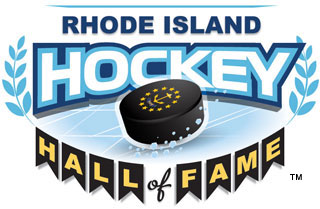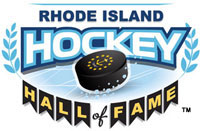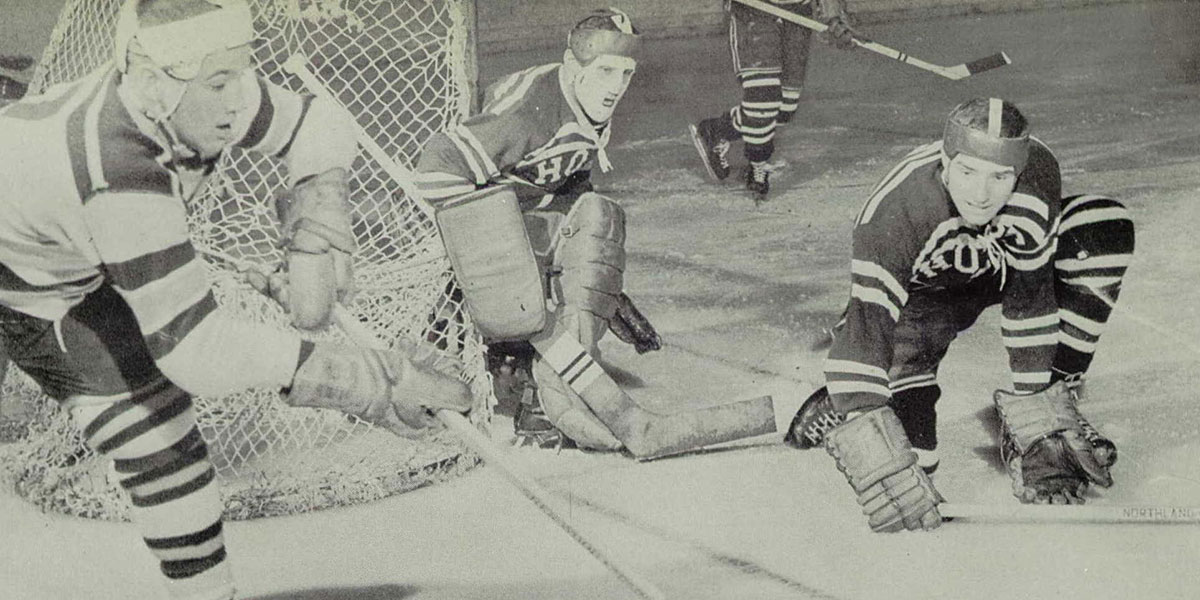The Gaudreaus are unique among Rhode Island’s prominent hockey families.
Theirs is the only family tree that includes a father who was an Olympian and a son who was an NHL player.
The patriarch, Robert Gaudreau Sr., skated for the United States in the 1968 Olympics in Grenoble, France, after a brilliant career at Brown University.
Nearly a quarter century later, Robert Gaudreau Jr. played 231 NHL games for the San Jose Sharks and the Ottawa Senators after four standout seasons at Providence College.
Like many local hockey success stories, the Rhode Island Auditorium plays a prominent part.
Robert Gaudreau Sr.’s family lived a wrist shot away from the old building, which was at 1111 North Main St. in Providence.
“You’d go out the back door of the Auditorium and you’d go into the front door of my house,’’ he said.
Gaudreau Sr. estimates that he was on the ice at age five or six. While growing up, “I lived in the rink. I was a rink rat,” he said. “Chief Stinson, the rink manager, liked me and my mom’s cooking.”
He said he watched and looked up to the stars of the Providence Reds in the 1950s, mentioning names such as Zellio Toppazzini, Camille Henry, Johnny Bower and Ivan Irwin.
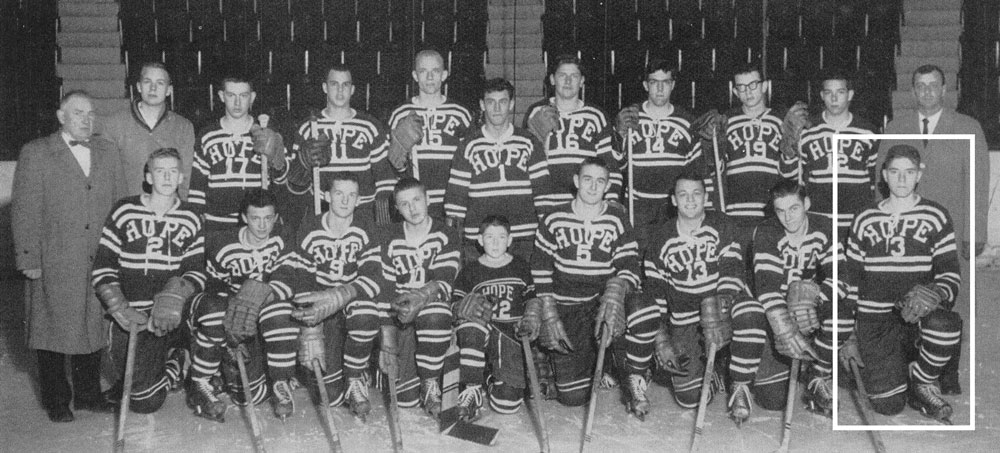 “He played with the Rangers for a while,” he said of Irwin, a fan favorite for his rugged play. “Not a very good skater, had a very weak shot, but he was a tough, tough kind of guy.”
“He played with the Rangers for a while,” he said of Irwin, a fan favorite for his rugged play. “Not a very good skater, had a very weak shot, but he was a tough, tough kind of guy.”
Gaudreau Sr. grew up to be a three-time All-State defenseman at Providence’s Hope High School. Under coach Ed Mullen, the Blue Wave put strong teams on the ice year after year. Gaudreau was a star on state championship teams in 1960 and 1961.
Those were great days for high school hockey in Rhode Island.
The Auditorium, one of the state’s only two indoor rinks at the time, “pretty much was filled for every game. It got to be the place to be. Basically, it was La Salle, Hope, Burrillville and Cranston. Those were the strong schools,” said Bob Gaudreau.
He remembers Danny Sheehan (La Salle), Roger Guillemette (LaSalle), Jerry Zifcak (Burrillville) and Jack Ferreira (La Salle) as among the top players of his era.
When it was time to pick a college, three schools were in the mix: Brown, Boston College and the U.S. Military Academy.
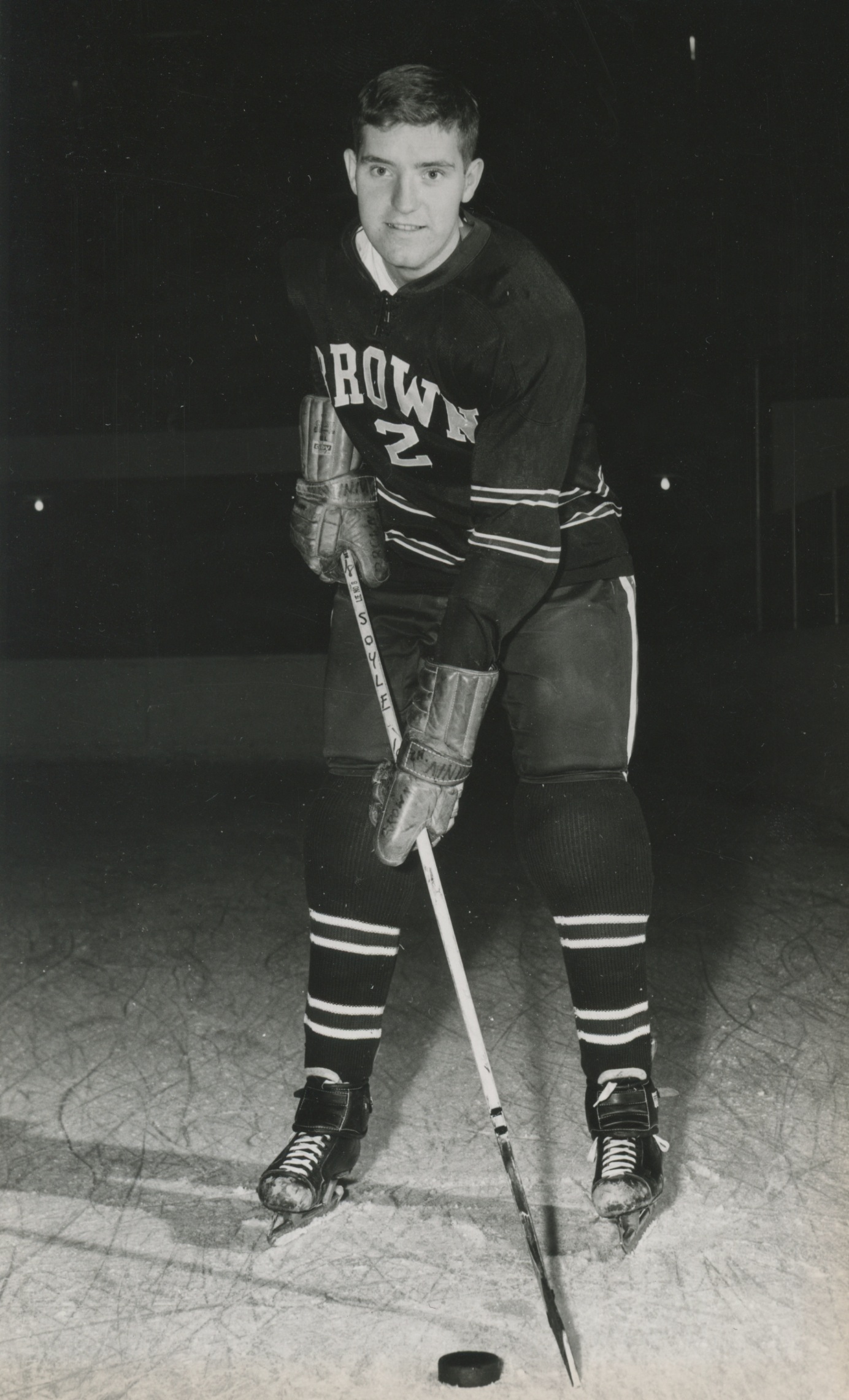 “Believe it or not, I almost went to West Point. As it turned out, I didn’t because my dad died in December of that year. I wanted to stay home to help my mother out,’’ he said.
“Believe it or not, I almost went to West Point. As it turned out, I didn’t because my dad died in December of that year. I wanted to stay home to help my mother out,’’ he said.
And so it was on to nearby Brown, where Gaudreau played for coach Jim Fullerton, who is a member of the Rhode Island Hockey Hall of Fame and the United States Hockey Hall of Fame.
Fullerton, as Coach Mullen had done at Hope, helped Gaudreau develop his game.
“The good part about my time with them was that they said, ‘When you get the puck, take it up the ice.’ Everything was driven by my ability to carry the puck. That was nice because it gave me the opportunity to really improve. I built a lot of confidence in myself because of these two gentlemen,’’ Gaudreau said.
Freshmen weren’t eligible to play when he got to Brown, but when he finally did suit up for the varsity he cut a wide swath through the Ivy League and the ECAC. Gaudreau was All-Ivy for three straight seasons and twice was named All-East, All-New England and All-American.
He earned the Walter Brown Award as the top American-born player in New England twice in a row, as a junior and senior.
Gaudreau was the highest-scoring defenseman in New England during all three of his varsity seasons, finishing with 35-55-90 totals.
The Bears went 0-20 the season before Gaudreau enrolled. “That was kind of a strange feeling, to go to a school that won no games,’’ he said.
Things changed in a hurry, a tribute to Fullerton’s recruiting and coaching.
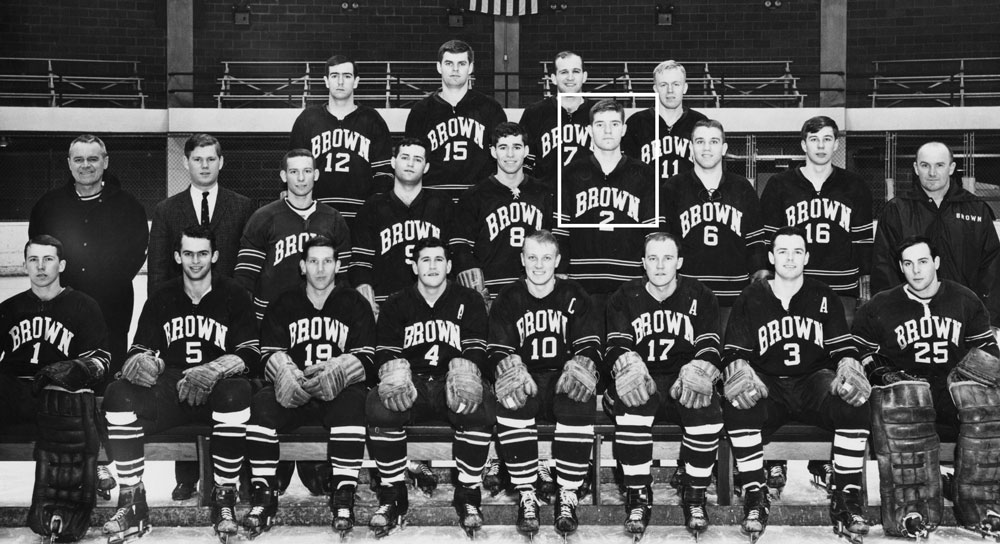 By 1964-65, Gaudreau’s junior year, Brown went 21-9 and won the Ivy League title. They advanced to the NCAA Final Four, which was played at the new Meehan Auditorium, losing to eventual national champ Michigan Tech, 4-3, in the semifinals.
By 1964-65, Gaudreau’s junior year, Brown went 21-9 and won the Ivy League title. They advanced to the NCAA Final Four, which was played at the new Meehan Auditorium, losing to eventual national champ Michigan Tech, 4-3, in the semifinals.
“It made us all feel good. The team a few years before that was 0-20, so to take it all the way to (the Final Four), even though we didn’t win it, was a real treat to us,” he said.
After graduating from Brown in 1966, Gaudreau set his sights on playing in the 1968 Olympics.
“That was a struggle, but fortunately I made the team. I hadn’t played much at all the year before, occasionally with the St. Nick’s club out of New York. Then all of a sudden I’m trying out for the Olympics. It made the climb that much more difficult. I was able to make the national team, but I also messed up my left knee
“When I finally got back again I had a couple of setbacks that made it more difficult for me, but I was able to work my way in.”
At the Olympics In Grenoble, the U.S. team finished sixth with a 2-5-1 record. The Soviet Union won gold, with silver going to Czechoslovakia and bronze to Canada.
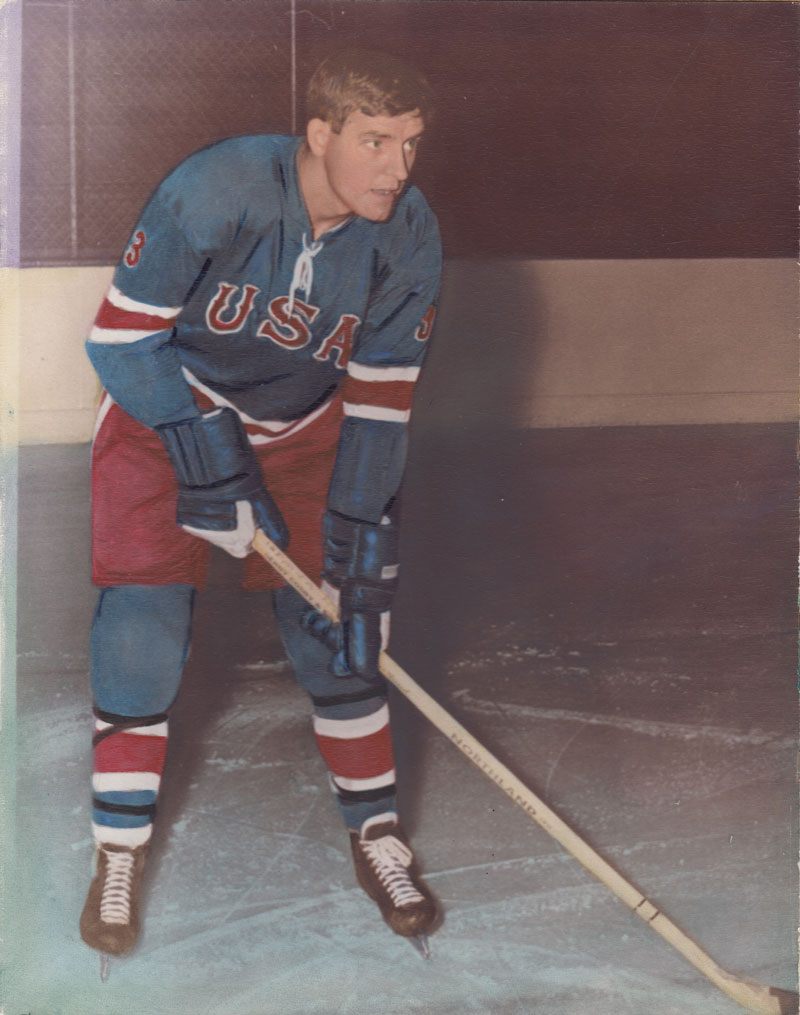 It was Gaudreau’s first time overseas and playing for his country was a high point of his hockey career. In particular, playing against the Russians was an eye-opener.
It was Gaudreau’s first time overseas and playing for his country was a high point of his hockey career. In particular, playing against the Russians was an eye-opener.
“They were such superior skaters. They were strong. I remember getting hit by one that was about three quarters my size and my teeth are still rattling from it,” Gaudreau said.
“They were better prepared because they played as a team, where we were just getting together in the fall to start out. We were basically way behind them.
“They developed a different system and the system was this: Don’t let the other team touch the puck. They used to pride themselves on the fact that once they got possession of the puck, the other team wasn’t going to touch it. That’s the way it was. They were pros.”
The Olympics brought Gaudreau’s competitive playing career to a close. A few years later, his time as a hockey dad started when his wife, Eileen, gave birth to Robert Jr.
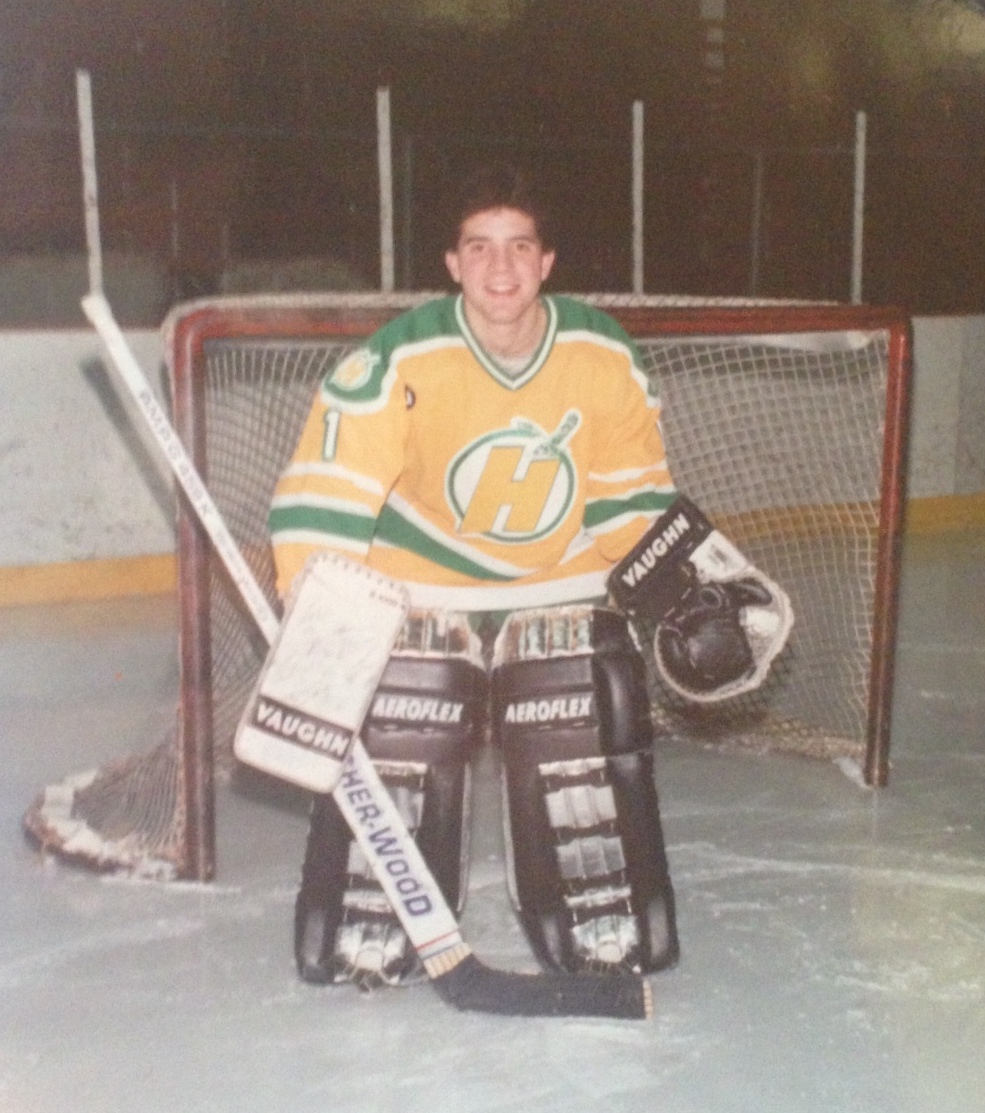 Another son, Scott, followed a few years later. Scott was a talented All-State goalie at Hendricken in 1992 and later starred at Roger Williams University. And now Scott’s sons, Perry and Shane, are excelling at the game, too.
Another son, Scott, followed a few years later. Scott was a talented All-State goalie at Hendricken in 1992 and later starred at Roger Williams University. And now Scott’s sons, Perry and Shane, are excelling at the game, too.
At age three, Robert Jr. was on the ice pushing a chair around. He fell in love with hockey right away.
His dad was always supportive, but never overbearing.
“He was important in the respect that he never pushed me too hard. He always presented opportunities for me to play and I was able to capitalize on those things. He did teach me how to play defense, but the pressure was never there, which I think was very important at the time. He probably coached me until I was about 10,’’ Rob said.
“My father is a pretty modest guy, so I didn’t get much out of him about any of his exploits. Even today, I just get, ‘Yeah, I was OK.’ That’s about all I get.”
Rob rose through the ranks in youth hockey and was a regular at Schneider Arena during the summer.
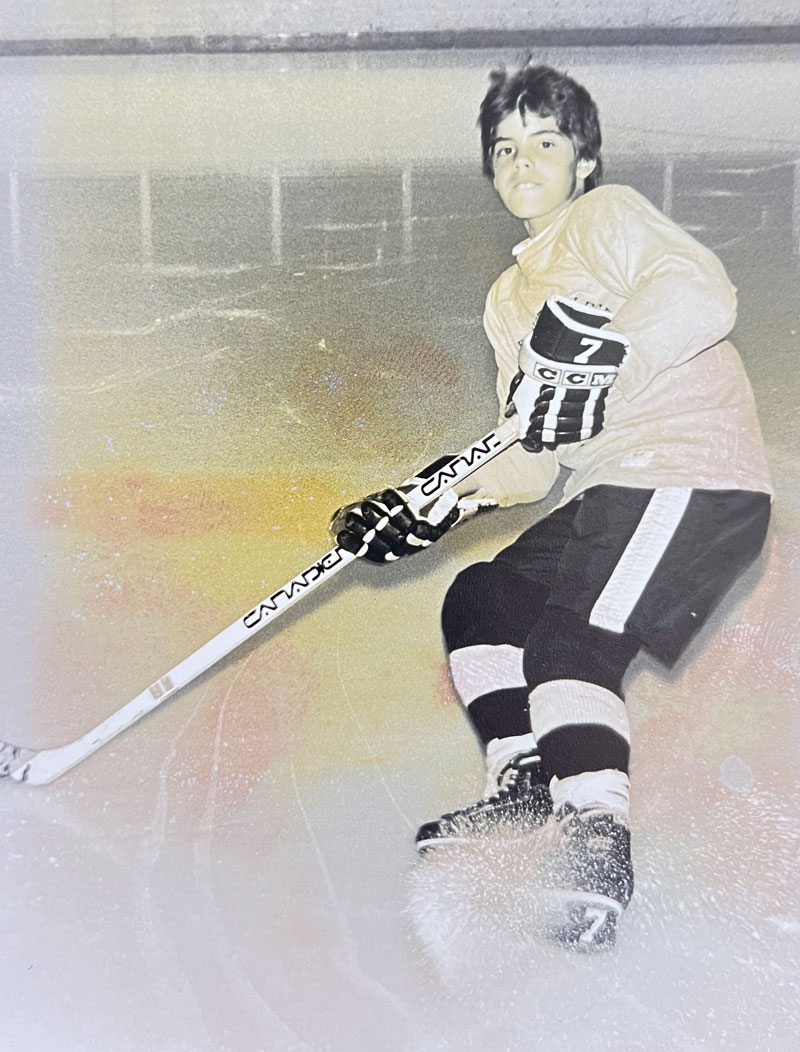 “I went to the Providence College hockey school for probably 10 to 12 summers when Lou (Lamoriello) was there and running it, so that was at least a month of my summer right there. I took to it pretty quick and obviously was skilled enough to move up the ladder.
“I went to the Providence College hockey school for probably 10 to 12 summers when Lou (Lamoriello) was there and running it, so that was at least a month of my summer right there. I took to it pretty quick and obviously was skilled enough to move up the ladder.
“I played probably from mites to midgets with Keith Carney (a member of the Rhode Island Hockey Hall of Fame’s inaugural class in 2018). We were the same age. For a good 10 years there we were pretty much on the same team all the time,” he said.
In high school, Gaudreau went to Hendricken and loved his time there, coming away with great memories of playing for head coach Don Armstrong.
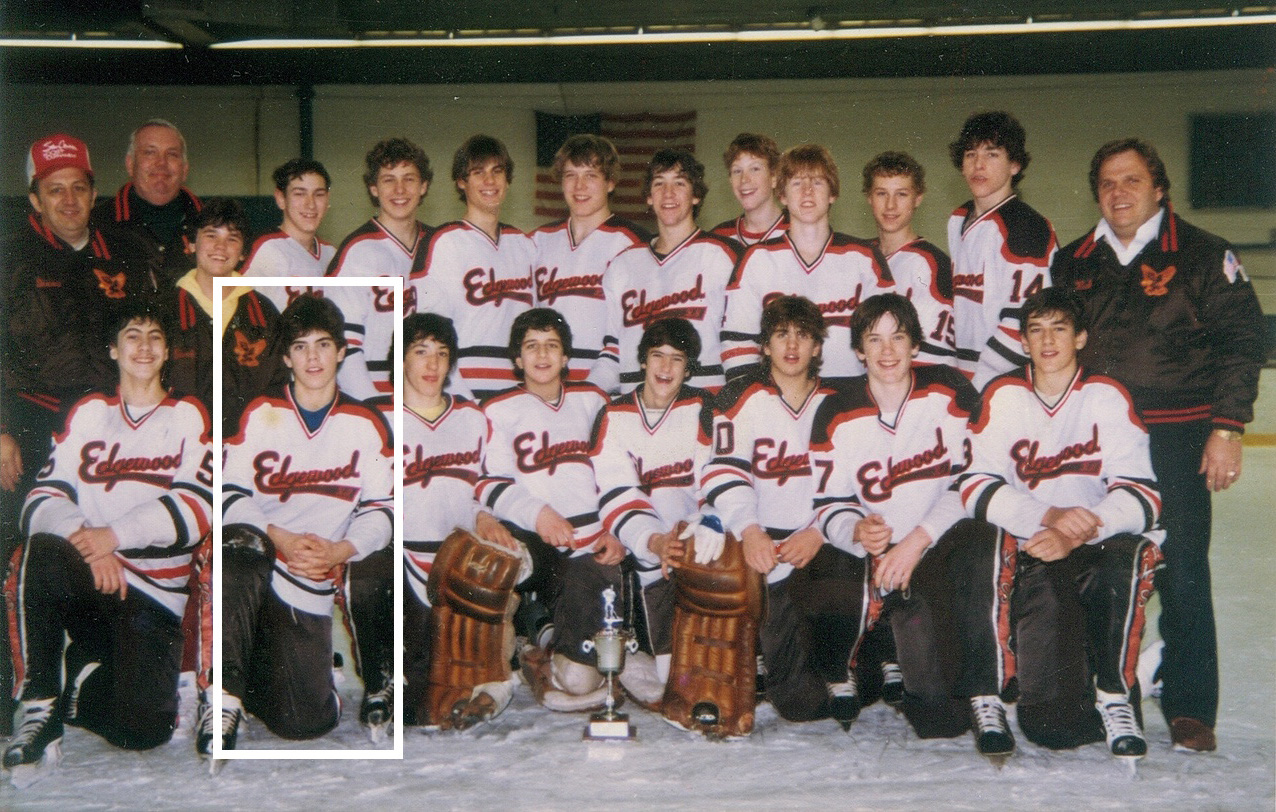 Among his teammates were David Emma, who won the Hobey Baker Award at Boston College in 1991 and was inducted in the R.I. Hockey Hall of Fame in 2019, and Steven King, who played at Brown. Both Emma and King went on to the NHL. The trio, along with Carney who played at rival Mount St. Charles and Maine before the NHL, had previously been the nucleus of the Edgewood Hawks team that captured the US Midget Championship in 1987.
Among his teammates were David Emma, who won the Hobey Baker Award at Boston College in 1991 and was inducted in the R.I. Hockey Hall of Fame in 2019, and Steven King, who played at Brown. Both Emma and King went on to the NHL. The trio, along with Carney who played at rival Mount St. Charles and Maine before the NHL, had previously been the nucleus of the Edgewood Hawks team that captured the US Midget Championship in 1987.
Hendricken’s rivalry with Mount St. Charles hit its peak during those years. The Hawks had great teams but could never beat the Mounties in the postseason.
“We couldn’t get over the hump in the finals. It was disappointing but looking back it didn’t really take too much away from it. It was just such a great experience.”
During his time in high school, as Rhode Island high school players were being picked on a regular basis in the NHL Draft, Gaudreau realized that a pro career could be in the cards.
He started being invited to USA Hockey select camps and playing with “(Mike) Modano and (Jeremy) Roenick and Tony Amonte and a bunch of guys from Minnesota that played forever in the NHL. From (age) 15 to the world juniors, I was around those guys quite a bit. That’s when I thought that maybe I could get paid to do this,’’ Rob said.
Gaudreau, a two-time All-State selection, put up a lot of points during his high school career – exactly how many is up for debate.
His Wikipedia page and his Elite Prospects page credit him with 52 goals and 60 assists for 112 points in 32 games as a senior in 1987-88.
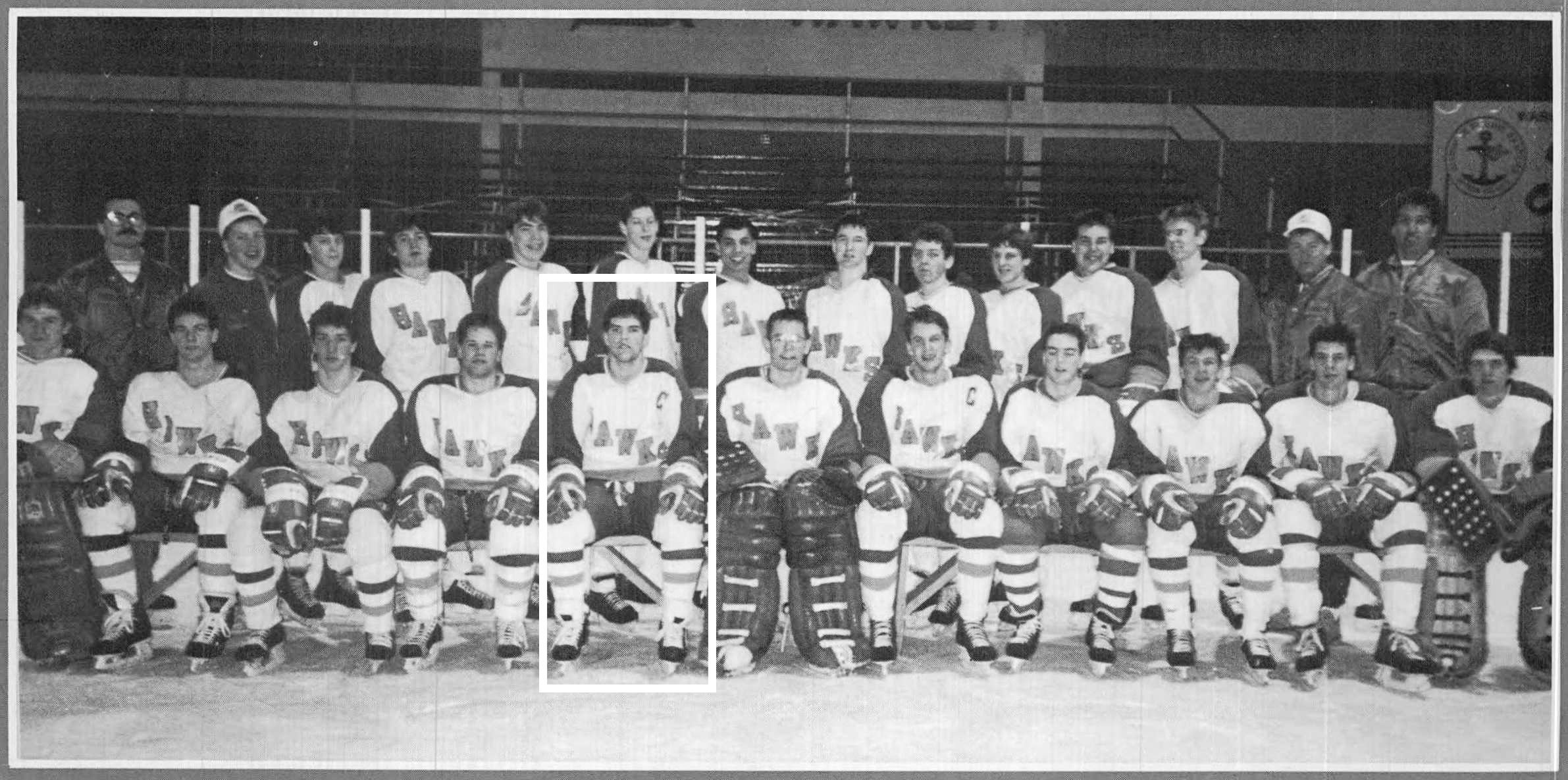 “How the hell would I have gotten that?” wonders Gaudreau. He has a theory.
“How the hell would I have gotten that?” wonders Gaudreau. He has a theory.
“The Interscholastic League had all these rules on how many games you could play — foolish, really. The way we’d get around it was (Coach Armstrong) would bring down a good Massachusetts team or we would go up to Massachusetts. We would play Catholic Memorial, Austin Prep and a few other ones.
“We wouldn’t wear our regular jerseys and we’d play a quote scrimmage unquote and we’d probably play damn near 90 minutes of hockey. I remember those games in the back rink down at Thayer, they were the best games going.
“So I started thinking that we did used to play these games for 90 minutes and the games sometimes were 12-9. I remember (Hendricken assistant coach) Rick Bozzer used to keep the stats. So maybe at the end of the day I did have some five-point nights because we were on the ice so long.”
With his high school career over, Gaudreau was drafted in the ninth round by the Pittsburgh Penguins in 1988. He had hoped to be picked higher.
“Like every other kid I thought the draft was the be-all and the end-all as to where you were in the grand scheme of things in hockey, so I was disappointed,” he said.
Heading to college, Gaudreau chose PC over Boston College.
“It was close, but at the end of the day, I had grown up in that rink and I knew everybody from the guys who did the ice to the coaches,” he said.
He made an immediate impact at PC, winning Hockey East Rookie of the Year honors in 1989 after putting up 28 goals and 57 points in 42 games.
“Robbie was very classy, very smart. He was a very unselfish player,” said his dad.
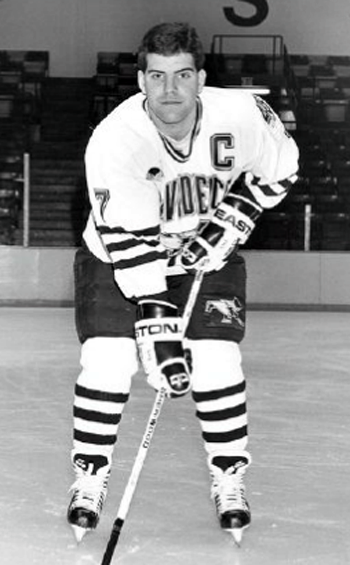 As a junior at PC, Rob scored 34 goals in 36 games, tied with Paul Guay for the most in a single season for the Friars. He moved back to defense near the end of that season when the Friars ran into some injuries.
As a junior at PC, Rob scored 34 goals in 36 games, tied with Paul Guay for the most in a single season for the Friars. He moved back to defense near the end of that season when the Friars ran into some injuries.
“I started off senior year playing forward. I had obviously had a pretty good junior year – but I was getting a little bit suffocated playing forward. (Coach Mike) McShane said why don’t you go back and play defense and basically just do whatever you want back there,” Gaudreau said.
“I went back there and basically did that. It worked out. I had learned defense and forward as I grew up. Going back to defense was nothing to me. There was no real adjustment period. I just went back and played. Growing up, I think everyone should play multiple positions. It gives you a better idea of what’s going on in the game.”
In his four-year PC career, he became the first player in school history to crack the 100-goal mark, finishing with 103, which remains a Friar record.
As a senior in 1992, he was a second-team All-American, a Hobey Baker Award finalist and winner of the Walter Brown Award, as his dad had been. He played for the U.S. in the World Junior Championship in 1992.
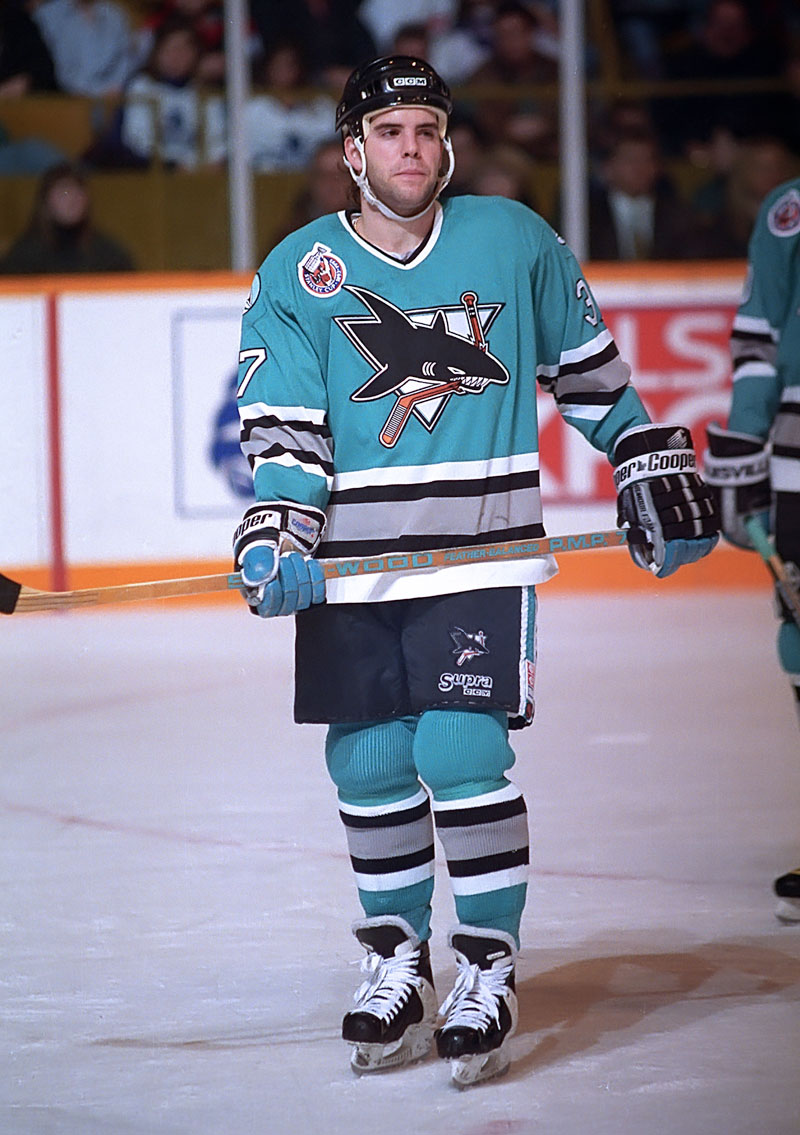 Gaudreau’s NHL rights had been traded to the Minnesota North Stars by Pittsburgh in 1988. In 1991, the San Jose Sharks selected him in the NHL Dispersal and Expansion Draft.
Gaudreau’s NHL rights had been traded to the Minnesota North Stars by Pittsburgh in 1988. In 1991, the San Jose Sharks selected him in the NHL Dispersal and Expansion Draft.
The Sharks were a brand-new team. Out of training camp, Gaudreau was sent to their minor league affiliate.
“I thought I should have made the team, frankly. At the time, the International League team that they had in Kansas City the season before had won (the championship). They basically said, these guys have earned the right to get some games up here, we’re going to send you down. I was pissed, frankly.
“I went down there and played. I did OK. I wasn’t lighting it up (eight goals and six assists for 14 points in 19 games). I got a call-up in the beginning of December.
“I got dropped off (at the airport) by a teammate, flew out (to California). It was a home game. I think we played the Oilers. I don’t remember being nervous that much. I remember a little bit of the warmups. I do remember stepping on the ice for the first time. It’s certainly surreal.
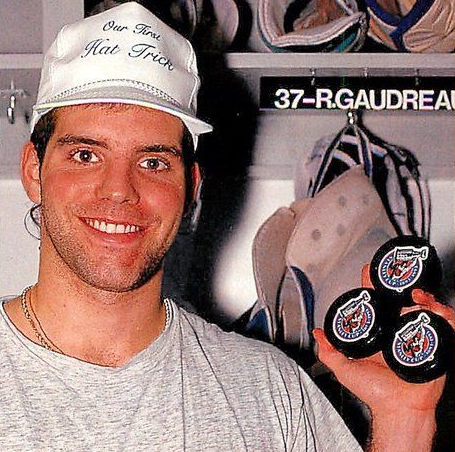 “The funny thing is – I watch hockey, but I’m not a nightly guy that watches a lot of hockey – but when I do see it’s someone’s first game, it will always bring me back to my first game. There will always be this tingling feeling that will come through me. That and someone scoring their first goal. It brings me back and it’s a great reminder,” he said.
“The funny thing is – I watch hockey, but I’m not a nightly guy that watches a lot of hockey – but when I do see it’s someone’s first game, it will always bring me back to my first game. There will always be this tingling feeling that will come through me. That and someone scoring their first goal. It brings me back and it’s a great reminder,” he said.
“I enjoy that. I get a little choked up at times because as you get further away from this, I think you start to appreciate the things you did when you were younger. I didn’t have any points, but I had a pretty good game.”
Gaudreau proved in a hurry that he was ready for the NHL, scoring 14 goals in his next 12 games while skating with Kelly Kisio and Johan Garpenlov on the Sharks’ top line. He was named NHL Rookie of the Month for December 1993.
He scored a hat trick – the first in Sharks history – against the Hartford Whalers in his second game, then scored another hat trick against the Quebec Nordiques nine days later.
Gaudreau finished the season with 23 goals and 20 assists for 43 points in 59 games.
His father described himself as “very, very, very proud” of his son’s accomplishment. I used to get so nervous for all the games. More so than when I was a player. It’s something different when it’s your kid.”
Playing in the world’s best league against some of the all-time greats was a big thrill, Rob said.
Gaudreau’s third NHL game was against the Pittsburgh Penguins at the Cow Palace in San Francisco. Superstar Mario Lemieux was having back trouble at the time, but he put on a show.
“He did not come out at the beginning of warmups, so I figured he must not be playing. But he came out with, like, 10 minutes left in warmups. He skated around for five minutes and then he left the ice,” Gaudreau said.
“Lo and behold, he ends up playing and has a goal and six assists. I’m pretty sure no one touched him all game. Those are great memories, playing against Pavel Bure and guys like that. It’s quite an accomplishment and very gratifying.”
After two seasons and 143 games with the Sharks, he was acquired by the Ottawa Senators, where he played 88 games over two years.
“I enjoyed my time there. It was nice. Playing hockey in a Canadian city is a great experience,” he said.
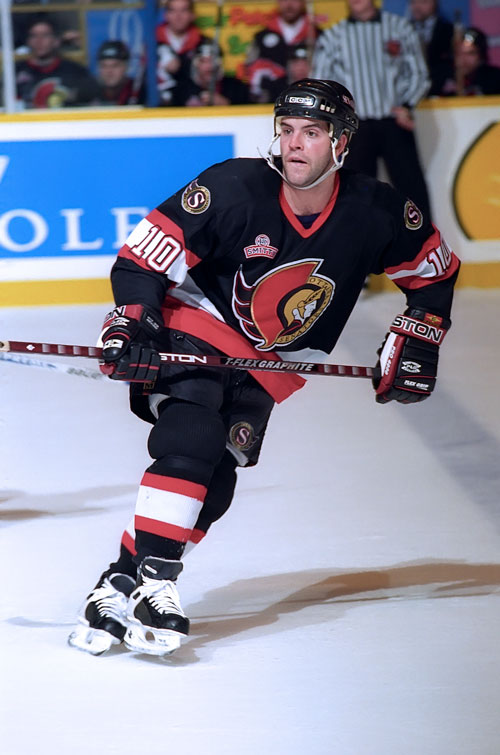
After scoring 19 goals and 42 points in 37 games in 1996-97 in the Swiss league with HC La Chaux-de-Fonds, Gaudreau retired as a player and went to work in the family business where he’s been ever since.
After a career full of tremendous accomplishments, induction in the Rhode Island Hockey Hall of Fame ranks near the top.
“I’m in the Hendricken Hall of Fame, I’m in the PC Hall of Fame and now I’m in the Rhode Island Hockey Hall of Fame. I think I’ve now maxed out my halls of fame. This is the last hall of fame I’m going to get into. It’s quite an honor to be in there with my dad and some of the guys I grew up with,” he said.
Posted by Mark Divver
